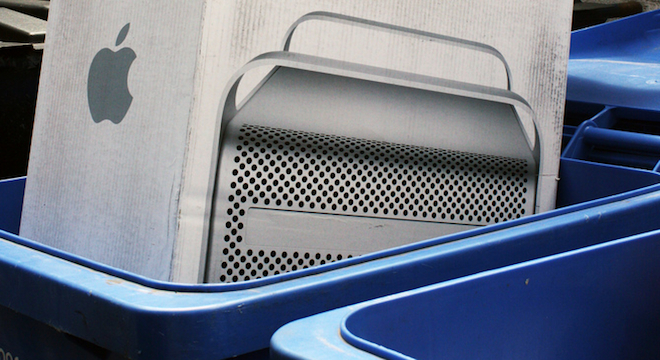Apple has been applauded lately by environmental advocacy groups for recommitting to making its products environmentally friendly.
Apple on July 13 announced that it was returning to an eco-friendly products registry it joined in 2006, called the Electronic Product Environmental Assessment Tool, or EPEAT, after taking major criticism and facing threats of lost orders after itde-listed its products from the registry the week prior.
But now that Apple has returned the 39 products it pulled (Apple has 40 products listed on EPEAT in total, including many of its popular Mac computers), not all is well, according to some advocates.
That’s because among the computers Apple has re-listed on EPEAT are its Macbook Pro Retina display models, the very same ones that reportedly caused Apple to withdraw from the registry in the first place. In fact, Apple has re-listed the Macbook Pro Retina versions as attaining EPEAT’s highest product rating: Gold, which indicates that it meets all of the organization’s criteria.
EPEAT grades products in terms of their ease of serviceability, upgradability and recyclability. But the Macbook Pro Retina display is anything but easily serviceable and recyclable, as it contains a glued-in battery, which is much more difficult to remove, repair and replace than batteries affixed mechanically.
The way EPEAT works: Every member company gets to first grade its own products and list them under the ratings are deserved — Gold, Silver, or Bronze — and then EPEAT itself goes back and reviews them to check if the rating is accurate.
One stakeholder organization that weighs-in on EPEAT’s decisions is the Electronics TakeBack Coalition (ETBC), an advocacy group that pushes for more recyclable products.
The ETBC says Apple is effectively greenwashing its products.
“We seriously doubt that these Mac Books should qualify for EPEAT at any level because we think they flunk two required criteria in the ‘Design for End of Life’ section of the standard,” wrote Barbara Kyle, ETBC national coordinator in a blog post.
EPEAT, too, could do better, according to Kyle.
“There’s two big issues [with EPEAT],” Kyle told TPM in a phone interview. “They don’t review all of the products listed and they’re not transparent about that. Customers should be able to easily see if a product rating has actually been verified.”
Indeed, EPEAT’s website doesn’t indicate a difference between products that have completed an EPEAT review and those that haven’t.
Neither Apple nor EPEAT immediately responded to TPM’s inquiries.






